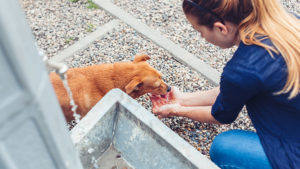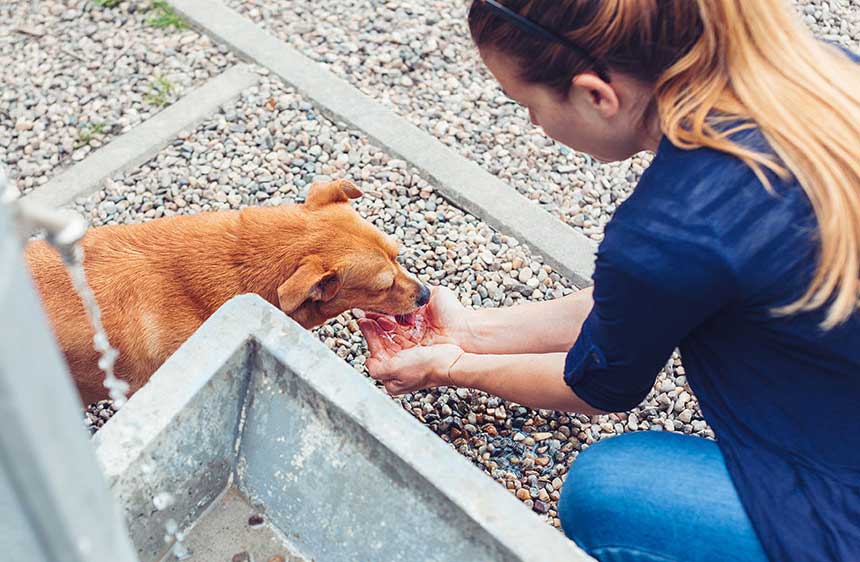Disclaimer: The information on our website is provided for general information purposes only. We make no representations or warranties of any kind, express or implied, about the completeness, accuracy, reliability, suitability or availability with respect to the website or the information contained on our website for any purpose. Any reliance on such information is therefore strictly at your own risk and we are not liable for any damages or losses arising out of or resulting from your reliance on any information contained on our website.
An animal control worker helps to capture animals that may harm themselves or harm others. They rescue stray or abandoned animals and animals that are mistreated and abused. They may even capture wild animals that wander outside of their natural habitat and into a populated area. Animal control workers use a variety of methods to capture an animal as safe as possible.
Watch a video to learn what an animal control worker does:
How to Become an Animal Control Worker

Though a formal education may not be required to become an animal control worker, some employers may prefer some training and a minimum of a high school diploma. Most states have laws that mandate what type of training or certifications may be required. Training is offered through various organizations such a local agencies, community colleges, or even national organizations. One is the National Animal Care and Control Association (NACA); they have a training academy that offers three types of certifications one can seek. You have to be 18 years old, and no experience is necessary. The curriculum is provided in-person or online. For more information, check out The National Animal Care and Control Association’s website.
Learning the basics in animal identification, transportation, handling, and animal safety can be beneficial when entering this field. Seeking more formal education at a college level can include a certificate or associate degree programs. Many find curriculum in animal care and management, animal behavior, veterinary technology, or even law enforcement.
Training to become an Animal Control Worker
Regardless of what path you take, you’ll need proper training because of the nature of the job; you may find yourself in a position that places you or an animal at risk. Because of this, you must handle stressful situations, keep calm, and think on your feet. Excellent and effective communication skills also help deal with people who may be looking for a lost pet or may have been injured by an animal. You must know the laws in the state you live in regards to animal welfare and control.
Also, the job is physically demanding, as animal care workers must often set off on foot to locate and capture animals. Animals may also need to be lifted into a vehicle for safe transport. Employers want to ensure you can handle the physical aspects of the job and will want to know you work well with animals, have patience, and find joy in helping those in need.
Job Description of an Animal Control Worker
Animal control workers perform a variety of tasks any given day, and they never know what type of animal or reptile, they will be working with. They work with owners that may have lost their pet, investigate animal abuse claims, and help with unclaimed animals. If an animal is suspected of being abused or mistreated, they may look at the circumstances, collect evidence, and interview people who may have witnessed the abuse. When necessary, they obtain the animal, write reports on their findings, and contribute or are present during court cases.
Animal control workers may also have to care for animals. Once animals are in their custody, they provide food, water, and ensure a safe environment. They may also seek veterinary treatment for animals in need of medical attention. Animal control officers often educate the public on pet laws and required licensing to ensure community or city compliance. They also capture animals using a variety of methods to safely transport them to an animal shelter. At shelters, animals would be given medical evaluations, treated, and if the animal is adoptable, put up for adoption in hopes of finding a better home. Unfortunately, animals that cause danger to others or are injured or sick may need to be euthanized.
Benefits of Being an Animal Control Worker
The main benefit of being an animal control worker is getting to help abused and abandoned animals. Many workers say the love for these animals is what gives them enormous satisfaction at the end of the day. These workers feel they are making a big difference in the lives of these animals by just feeding, watering, and interacting with them. Also, this job has obvious benefits, such as paid vacation and sick leave, medical, dental, and vision insurance if working full time.
Schedule and Working Hours
The hours of animal control workers can vary depending on the need, giving flexibility in the schedule they like. Animal control workers enjoy working most of the time outdoors instead of in an office. Many animal control workers benefit from the opportunity of advancement into management or investigator. The promotion gives the added benefit of more money. Animal control workers are our animal friends’ heroes, and we shout out for their efforts to save them!
Animal Control Worker Career Video Transcript
Historic images have given the village dogcatcher a bad rap, but in reality animal control workers are more like social workers than dastardly villains. While love for animals is a good place to start, you’ll need skills and discipline to become an animal control worker. These workers take care of animals who are abandoned, unlicensed, mistreated, or who pose a danger to the community. In addition to transporting and caring for animals, the job often includes euthanizing severely injured and unclaimed animals. But it can also involve arranging for medical care and adoption of animals.
To be an animal control worker takes dedication to the well-being of animals and the public, as well as large doses of patience and assertiveness. Animal control workers may be a part of a local police department, an independent agency, or a private organization. These workers investigate reports of cruelty to animals, and complaints of animal attacks on people and other animals. They must interview the people involved, gather evidence, and write up reports. They are often on call at night, on weekends, and holidays. Employers typically prefer candidates with a high school diploma. Training usually takes place on the job, though some career schools and police academies offer related courses. The greatest reward for animal control workers is knowing they help protect the vulnerable creatures living alongside us.
Article Citations
Bureau of Labor Statistics, U.S. Department of Labor, Occupational Outlook Handbook, Animal Control Workers.
National Center for O*NET Development. 33-9011.00. O*NET OnLine.
The career video is in the public domain from the U. S. Department of Labor, Employment and Training Administration.

